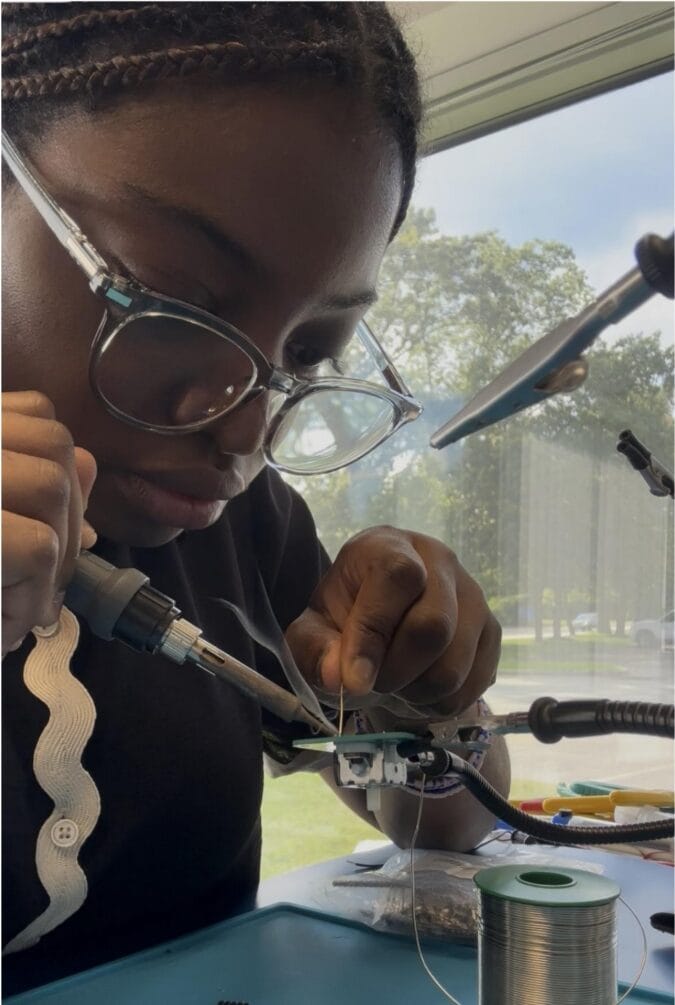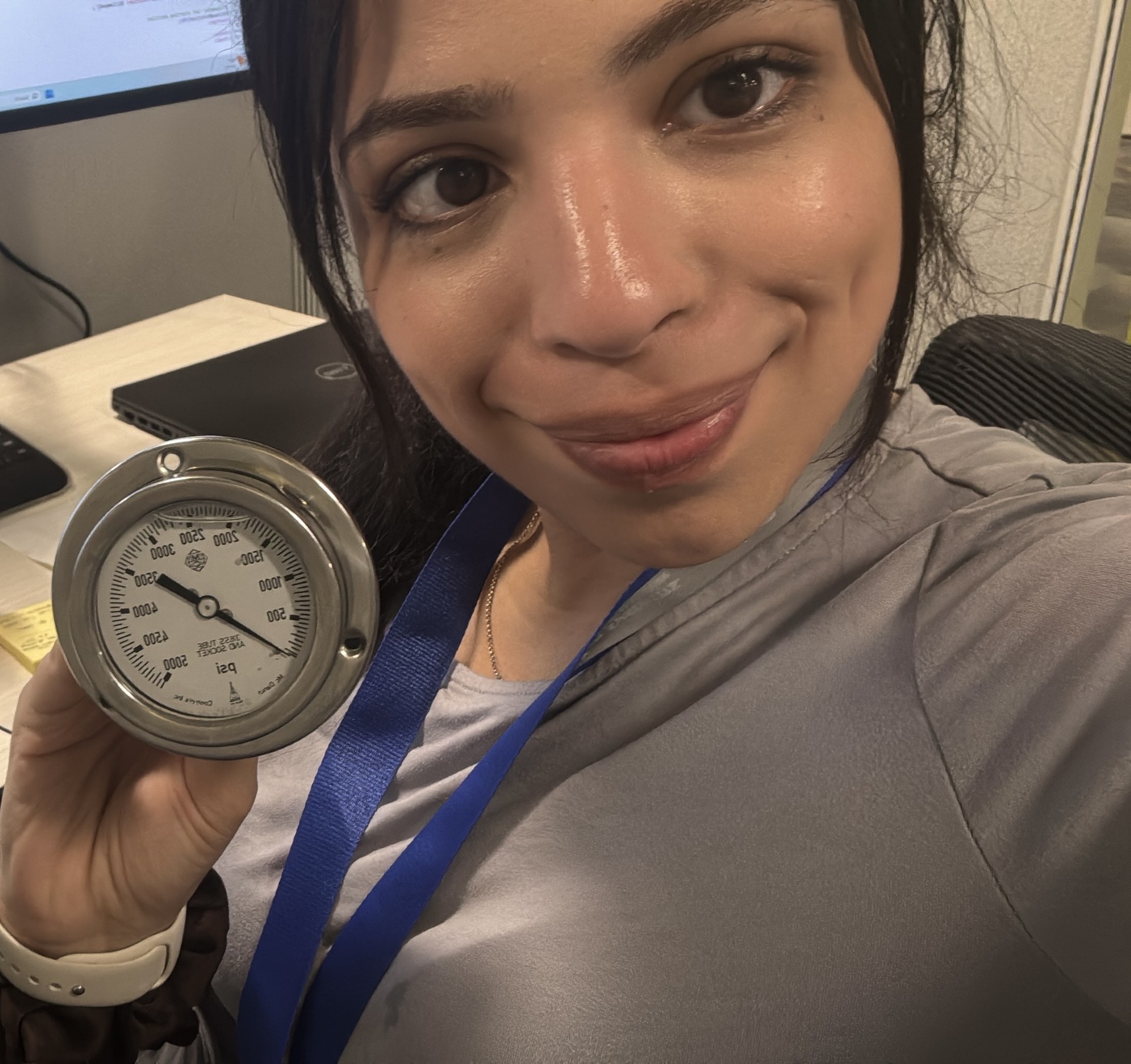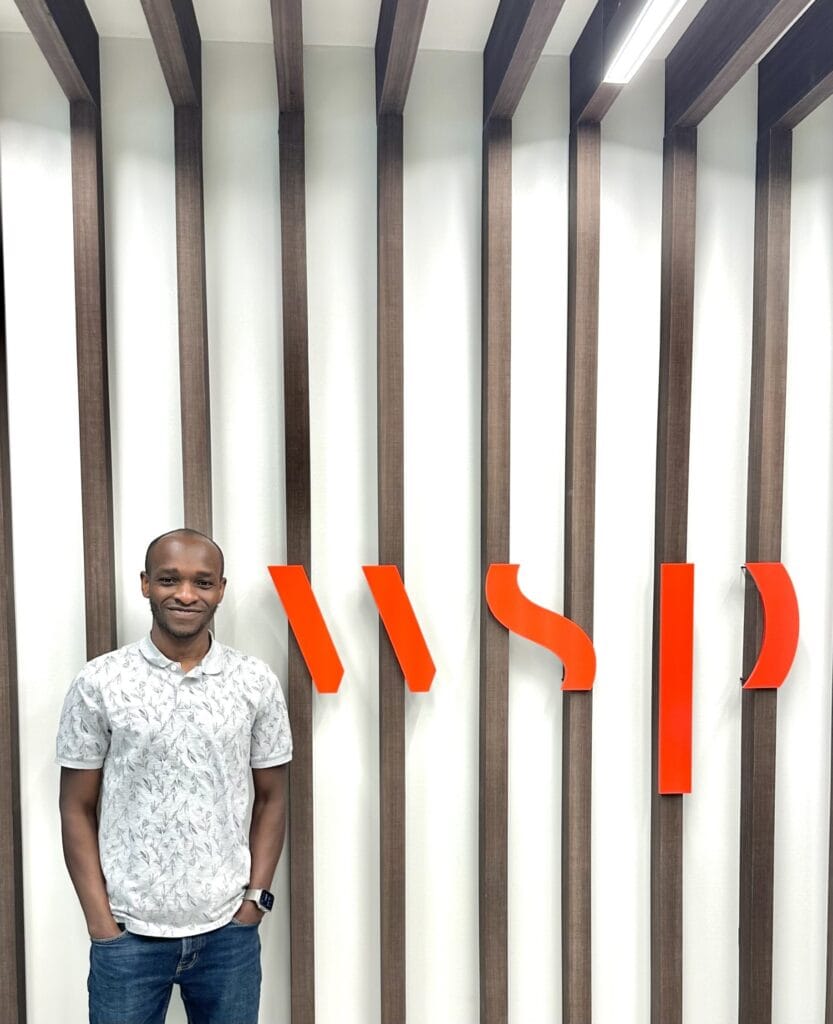Industrial Exchange Program (IExP)
As part of ARROW’s commitment to developing a skilled offshore wind (OSW) workforce, the Industrial Exchange Program (IExP) places graduate and undergraduate students in internships and applied research roles with industry, national labs, government agencies, and NGOs. If you are a student interested in pursuing a career in wind energy, please register below.
How it works
ARROW works to facilitate placement of students from ARROW institutions in paid internships within industry, national labs, government agencies, and NGOs.
- When you join our list, ARROW will email out job postings and opportunities.
- ARROW collects your resumes and provides matchmaking services-connecting external partners to a short-list of the most qualified students for a particular opening. We will do our best to alert you when we do this so that interview requests don’t come as a surprise.
- ARROW facilitates informal collaborations between industry partners and advanced graduate students. These partnerships allow students to solve industry-relevant problems identified by the collaborators.
Who is this open to?
- We welcome any major, including engineers, computer scientists, environmental scientists, marine and oceanic scientists, ecologists, sociologists, anthropologists, business majors and more.
- We also welcome undergraduate, masters, and PhD students.
- Priority will be given to students enrolled in an ARROW core institution or ARROW affiliate institution.
- Unfortunately, the majority of positions are only available to US citizens and permanent residents. International students are welcome to register and if opportunities arise we will share them out, but be aware that they are few and far between.
Resume
We ask students to provide a resume to help us match you with employers. If you do not currently have a resume, or you would like to improve your existing resume, we encourage you to check out this guide, and to make an appointment with your school/college/department’s career development office.
If you have questions, please reach out to Zoe Getman-Pickering at [email protected].
How it works
ARROW works to facilitate placement of students from ARROW institutions in internships within industry, national labs, government agencies, and NGOs. This process is tailored to the needs and processes of our external partners and can be handled a variety of ways:
- ARROW shares job and internship placement ads with its network of hundreds of students.
- ARROW collects the resumes of interested students and can provide matchmaking services-connecting external partners to a short-list of the most qualified students for a particular opening.
- ARROW funds stipends for students working with organizations in special cases, particularly those that don’t have the funding or infrastructure for traditional internship programs.
- ARROW facilitates informal collaborations between industry partners and advanced graduate students funded through ARROW. These partnerships allow students to solve industry-relevant problems identified by the collaborators.
Areas of expertise within ARROW
ARROW is made up of 8 core institutions: UMass Amherst, Dartmouth and Lowell; Johns Hopkins University; Northeastern University, Morgan State, University of Puerto Rico Mayaguez, and Clemson University. Within these institutions and affiliated partners, we have a pool of undergraduate, master’s and PhD students with expertise in the following areas:
- Infrastructure: Mechanical, Geotechnical, and Civil Engineering
- Grid: Industrial, Systems, and Electrical Engineering
- Metocean Resources: Oceanography, Atmospheric Science
- Ocean and Human Ecology: Environmental Science, Anthropology, Marine Biology
We support students pursuing careers in offshore wind energy and recognize the value of hands-on experience. That’s why we also encourage and support opportunities in related fields—such as other areas of renewable energy and connected industries—to help students build relevant skills and networks.
Student Testimonials

Oriane Nana, an electrical engineering major from Johns Hopkins University, is working with Triton Anchor to make a controller for an offshore installation system. Oriane noted, “My favorite part of this internship is the autonomy I have in figuring out how to resolve roadblocks in a workplace setting. I’ve had to do a lot of research and find alternate solutions to resolve most of the challenges I’ve encountered in my work and while sometimes it gets frustrating, I’ve found the prospects of learning new things to be incredibly motivating.”
Yasmine Maltoufi, an industrial engineering major from UMass Amherst, is developing a user interface for Triton Anchor’s subsea anchoring and monitoring system. Her interface helps operators precisely position, attach, and verify anchors on the seabed for offshore structures such as wind turbines or subsea platforms. She also designed a user‑friendly keyboard interface that hooks directly into the GUI, so users can control functions quickly and intuitively. “This work lets me combine my passion for web development with my interest in human‑factors engineering, ensuring every element is optimized for usability and accessibility.”


Oyewole Abe, a doctoral researcher at UMass Amherst, is working with WSP to develop a workflow for modeling offshore wind turbine foundations using a hybrid setup that incorporates the monopile and attached secondary structures within a single finite element model. Rather than relying on conventional simplified methods, the workflow combines turbine loads from the OEM with hydrodynamic simulations, enabling both global analysis of the entire foundation and close-up evaluation of stress at specific points. Oyewole shared, “This method bridges efficient calculations with detail. It’s challenging, but being able to see both the overall response and localized stress hotspots is a step toward integrated monopile analysis including internal and external work platforms.”
Stephen Ampleman, a mechanical engineering PhD student from Johns Hopkins University, is working with Pacific Northwest National Laboratory (PNNL) to develop supervisory control laws for hybrid power plants. These hybrid power plants, which typically consist of an aggregation of renewables and energy storage, are complex systems requiring control strategies to account for multiple objectives and, at times, conflicting constraints. “I’m very grateful to the team at PNNL for hosting me this summer and giving me the opportunity to work on this project. From learning about how hybrid energy systems are modeled, to designing a control law to efficiently manage them, it was a very rewarding experience.”

